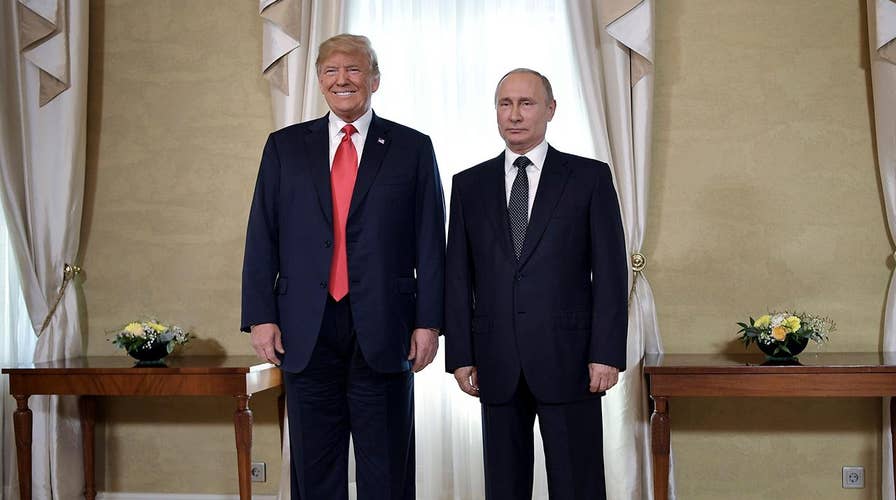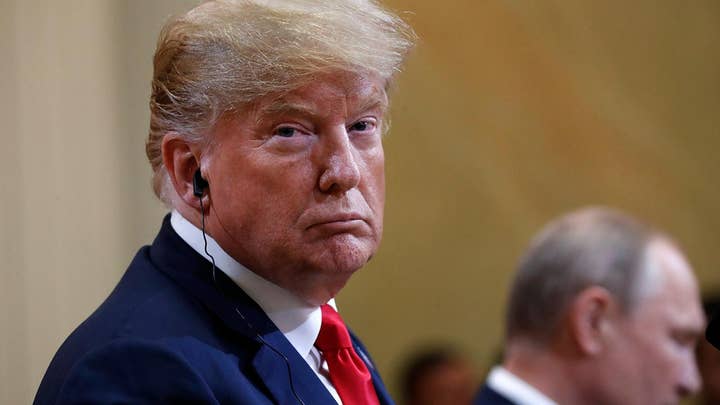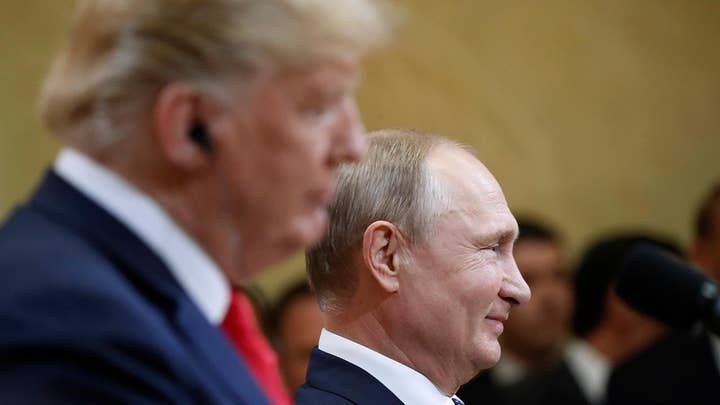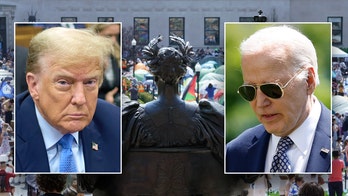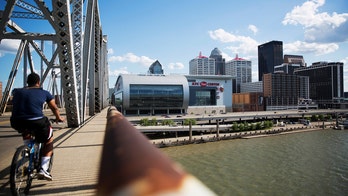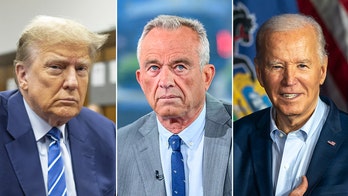Trump deflects question on Russia meddling at Putin presser
President Trump, after being questioned by a reporter on if he believed U.S. intelligence or Vladimir Putin's denial about meddling in the 2016 election, says he has confidence in both parties; John Roberts reports on the takeaways from the post-summit press conference.
President Trump and Vladimir Putin tackled allegations of election meddling in unprecedented terms following their one-on-one summit Monday, with Trump opening the door to an unusual offer of cooperation in the special counsel probe and the Russian president suggesting he indeed favored the billionaire businessman in 2016.
But Putin, emphatically and repeatedly, denied meddling in the U.S. election, saying there's "no evidence." And Trump, while saying they spent a "great deal of time" discussing the allegations, said he doesn't "see any reason why" Russia would be behind election meddling and blasted the ongoing probe as a "disaster for our country."
The two leaders spoke at a freewheeling joint press conference following a pair of meetings -- one private -- in Helsinki, Finland. Trump and Putin touted the summit as a "success," vowing to improve ties on a range of issues.
“I would rather take a political risk in pursuit of peace than to risk peace in pursuit of politics,” Trump declared.
During their press conference, few topics were off limits. The session with international reporters ended with Putin being asked whether he had compromising material on Trump, which he dismissed as "nonsense." Even that moment was overshadowed by the extensive comments on election meddling.
Trump once again asserted there was "no collusion."
“I didn’t know the president. There was no one to collude with, and there was no collusion with the campaign,” Trump said, suggesting Democrats have used the issue as an excuse for losing. “We ran a brilliant campaign, and that’s why I’m president.”
When asked which side is responsible for damaged relations, Trump said, "I hold both countries responsible."
The statement drew bipartisan criticism back in Washington.
"This is bizarre and flat-out wrong. The United States is not to blame," Sen. Ben Sasse, R-Neb., said in a statement.
Former CIA director John Brennan, who frequently blasts Trump, tweeted: "Donald Trump’s press conference performance in Helsinki rises to & exceeds the threshold of 'high crimes & misdemeanors.' It was nothing short of treasonous."
The summit came just days after the Justice Department announced the indictments of a dozen Russian intelligence operatives for allegedly hacking Democratic targets in the 2016 U.S. presidential election. Putin has previously told Trump that Russia did not meddle in the 2016 presidential election. He repeated those denials Monday.
And when asked whether he would extradite the 12 Russians allegedly involved, Putin instead detailed a plan, which Trump called an “incredible offer.”
Putin offered to question the 12 indicted for meddling in the election, and added that Mueller's team of investigators could be present for questioning, if U.S. officials would “reciprocate.” He suggested this would mean Russian agents could be present for questioning U.S. officers "of interest" to them.
Meanwhile, Putin suggested he favored Trump in the election, saying, "Isn't it natural to be sympathetic towards a person who is willing to restore the relationship with our country?" But he maintained there was no election interference.
The two leaders said they discussed a host of other issues during their meeting Monday in Helsinki, and were working toward strengthening U.S.-Russian relations -- which Trump said “has never been worse than it is now” despite the push from Democrats and some Republicans back home in the U.S. to cancel the summit.
But he said the relationship has changed. Trump said he would “not make decisions on foreign policy in a futile effort to appease partisan critics, the media or Democrats who want to resist and obstruct.”
At one point, Putin handed Trump a soccer ball and said "the ball is now in your court."
The joint press conference was held minutes after the historic summit between the two leaders Monday. The two met one-on-one for more than two hours, and later in an expanded meeting with key advisers.
Trump, as the private meeting began earlier Monday, said the two would have “a lot of good things to talk about,” from trade to missile defense to China. A host of other issues, from Russia election meddling to the annexation of Crimea to Syria, were also expected to come up.
“I think we will end up having an extraordinary relationship,” Trump said, sitting next to Putin earlier at the presidential palace in Helsinki. “Getting along with Russia is a good thing, not a bad thing.”
Putin later said he and Trump agreed to continue detailed discussions on arms control issues.
Putin said Russia and the U.S. should discuss a possible extension of the 2010 New START nuclear arms reduction treaty and the implementation of the 1987 Intermediate Nuclear Forces Treaty.
Trump sat down with Putin after spending the last week sparring with traditional U.S. allies—first with NATO nations over their levels of defense spending, and later with British Prime Minister Theresa May over her ‘Brexit’ strategy, though he seemed to patch things up before leaving London.
The tensions early on in his European tour created a contrast with efforts to improve ties with Moscow, leading to bipartisan concerns about the summit.
The president also claimed ahead of his summit with Putin that the Russian president would not have invaded Crimea had he been in office, calling the globally condemned annexation an “Obama disaster.”
PUTIN GIVES TRUMP A WORLD CUP SOCCER BALL, TELLS HIM 'NOW THE BALL IS IN YOUR COURT'
Putin has signaled he would like Trump to soften sanctions that Washington imposed over the annexation of Crimea and support for separatists in eastern Ukraine, involvement in the Syrian civil war and allegations of Russian meddling.
Trump signed an August 2017 law imposing additional sanctions on Russia. The law bars Trump from easing many sanctions without Congress’ approval, but he can offer some relief without a nod from Congress.
Almost 700 Russian people and companies are under U.S. sanctions. Individuals face limits on their travel and freezes on at least some of their assets, while some top Russian state banks and companies, including oil and gas giants, are effectively barred from getting financing through U.S. banks and markets.
Fox News' Judson Berger, Greg Wilson and The Associated Press contributed to this report.
